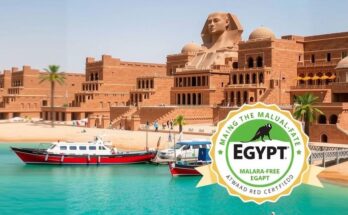Burundi has reaffirmed its support for Morocco’s territorial integrity during a diplomatic meeting in Rabat, endorsing Morocco’s Autonomy Plan for Western Sahara. This move is seen as a setback for Algeria’s diplomatic efforts, with increased African recognition of Morocco’s stance reflected in the establishment of consulates in disputed areas. The report by the Moroccan Center for Parallel Diplomacy emphasizes Morocco’s strategy to expel the Polisario from the African Union through broad support and legal challenges.
In a significant diplomatic development, Burundi has once again underscored its unwavering support for Morocco’s sovereignty over its entire territory, encompassing the disputed regions of Western Sahara. During a high-level meeting in Rabat, Burundian Foreign Minister Albert Shingiro articulated this firm stance to his Moroccan counterpart, Nasser Bourita. Shingiro emphasized that Burundi endorses Morocco’s Autonomy Plan as the sole viable resolution to the contentious regional dispute. He also commended the contributions of the United Nations as the primary mechanism tasked with brokering a sustainable solution to the matter. This affirmation from Burundi has been interpreted as a direct challenge to Algeria’s diplomatic maneuvers, as highlighted by the political analyst Oualid Kebir, who remarked that any attempts at persuasion from Algeria have conclusively failed. This robust alignment between Burundi and Morocco represents a trend of increasing African support for Morocco’s position regarding Western Sahara. The evidence of this growing support is illustrated by Burundi’s previous establishment of a consulate general in Laayoune back in February 2020, marking a notable diplomatic presence in the region. Furthermore, Chad’s recent decision to open a consulate in Dakhla has raised the total number of countries with diplomatic representation in the disputed territories to 29. Against the backdrop of these developments, the Moroccan Center for Parallel Diplomacy and Civilizational Dialogue has recently pointed to Morocco’s re-engagement with the African Union (AU) in 2017 as a strategic pivot enhancing its diplomatic outreach concerning Western Sahara. The center’s report indicates that Morocco now faces the challenge of negotiating the legal and political intricacies posed by the presence of the Polisario Front within the AU framework. Morocco’s aspirations to dissociate the Polisario from the AU necessitate the establishment of a supportive ‘broad African front’. The report posits that such a coalition can be fostered through strategic partnerships across economic and security spectra with allied African nations within the AU. Additionally, the center advocates for the formulation of a comprehensive legal challenge to the Polisario’s legitimacy as an AU member, underlining its lack of recognition as a sovereign state by the UN and its debatable claim to represent the Sahrawi populace.
The diplomatic struggle over Western Sahara has been a longstanding conflict involving Morocco and the Polisario Front, which seeks independence for the Sahrawi people. Since Morocco’s annexation of Western Sahara in 1975, the area has remained a point of contention between these entities. Morocco claims sovereignty over the territory and has proposed an Autonomy Plan, advocating for negotiations through a UN framework. Meanwhile, Algeria has historically supported the Polisario’s bid for independence, creating a complex geopolitical tension in North Africa. Recent trends indicate a shift in diplomatic recognition and support within the African continent towards Morocco’s position, evident through the establishment of several consulates within the disputed territories.
In conclusion, Burundi’s reaffirmation of support for Morocco’s territorial integrity is a landmark event in the ongoing discourse surrounding Western Sahara. It highlights the increasing backing from African nations for Morocco’s position, complicating Algeria’s diplomatic efforts in the region. As Morocco fortifies its diplomatic relations and seeks to challenge the legitimacy of the Polisario Front within the African Union, the geopolitical landscape in North Africa is likely to evolve, necessitating careful monitoring of future developments in this enduring conflict.
Original Source: moroccoworldnews.com



